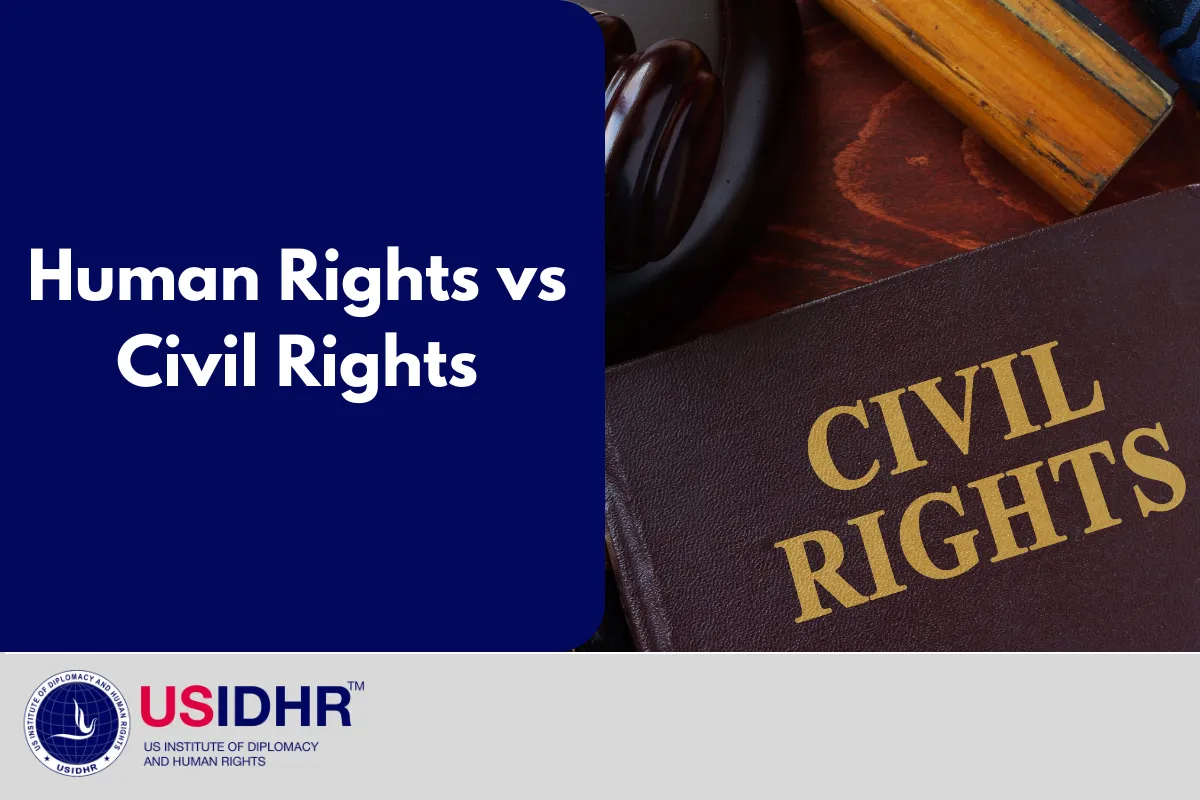
Human Rights vs Civil Rights
Human rights and Civil Rights. Two key terms within the sphere of diplomacy and development which you have probably heard of, but what do they actually stand for and what are the differences between them?
A simple definition is that human rights are the rights you have simply for being a human being. Comparatively, civil rights are contextual, meaning you are entitled to specific civil rights through being a citizen of a particular country, nation, or state. Civil rights are proclaimed by the government for the citizens of that country, while human rights are derived from natural law and are universally protected and applied.
Human Rights
The United Nations Declaration of Human Rights in 1948 universally protects Human rights via international law. Officially created after World War 2 to protect against what happened under the Nazi regime, it was adopted as the first legal document to set out the fundamental human rights to be universally protected. Some key examples include The Right to Life, The Right to Food, The Right to Education, and The Right to Work.
Civil Rights
Civil rights are designed to protect individuals’ freedom from violation by governments, political and social organizations, and individuals. They protect against discrimination in civil and political society, but this protection depends on the state or nation in which the citizen belongs: ‘Civil rights are in place to protect citizens from discrimination and to grant them certain freedoms in that nation.’ For example, in the United Kingdom, Civil rights are protected by Common law and statute, whereas in the United States, the Constitution protects Civil rights.
What is the difference?
Both Human rights and Civil rights protect against discrimination, injustice, and inequality. They are closely linked, for example, if you are denied a fair trial by an impartial and independent council, a Human right, you are also denied your Civil right in many countries and states. On an international level, as Civil rights are determined by the laws or constitutions of an individual country, and Human rights are considered universal to any human being, some human rights become civil rights when governments choose to put those rights into national laws. Notably, Civil rights can vary from nation to nation or state to state: ‘No nation may rightfully deprive a person of a human right, but different nations can grant or deny different civil rights and liberties.’ [3]
Another difference is why you have the right. Human rights are due to being a human being; you are born with them, but Civil rights occur as a result of some Human rights being put into law. Civil rights can be found in Constitutions, or within laws in that country. For example, in the United States, the UDHR Freedom of Expression (Article 19) is in the Constitution defended by the First Amendment. In the United Kingdom, under the 1998 Human Rights Act which was adopted, everyone has the right to Freedom of Expression as well. Hence, both Human rights and Civil rights protect a human being against injustice, maltreatment, and oppression. However, Human rights are something universally applied and given to every human being, whereas Civil rights are dependent on a citizen’s context and government or political regime.
Influencing change
How does one go about understanding these differences? And not only understanding them but being able to implement that knowledge to help others understand the difference? We at USIDHR are committed to helping everyone learn their human rights. Our human rights certificate program certifies generations of human rights consultants that are able to go out there and teach others their rights. Click here to register for our human rights training and get certified.

